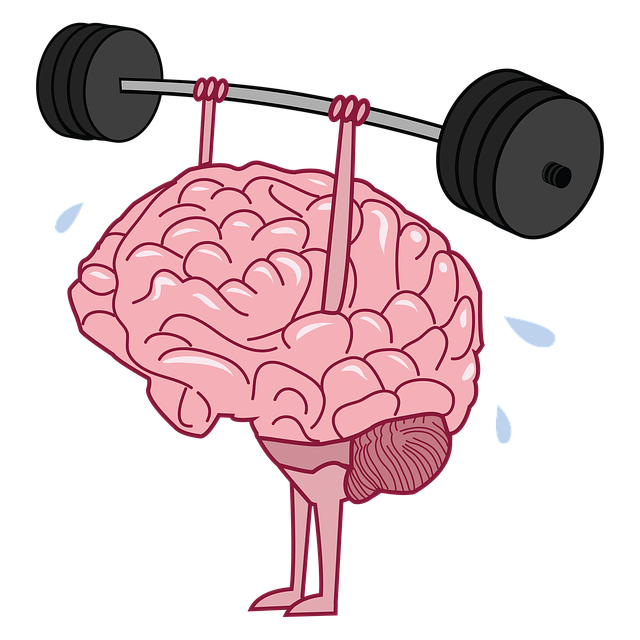Burnout among healthcare providers, particularly in specialized fields like Northglenn Geriatrics Therapy, is a growing concern due to high-stress environments, long hours, and complex decision-making. To combat this, Northglenn Geriatrics Therapy implements holistic strategies such as Mental Wellness Journaling, Exercise Guidance, Social Skills Training, and Coping Skills Development programs. These initiatives prioritize self-care, enhance resilience, improve patient outcomes, and increase the quality of care. By fostering a supportive work environment, open communication, professional growth opportunities, and stress management techniques, Northglenn Geriatrics Therapy effectively prevents burnout, ultimately benefiting both healthcare providers and geriatric patients.
Healthcare provider burnout is a growing concern, impacting patient care and organizational productivity. This article explores effective strategies to prevent burnout among healthcare professionals, focusing on lessons learned from Northglenn Geriatrics Therapy—a pioneering model that has successfully mitigated burnout. We delve into enhancing resilience, creating supportive work environments, and evidence-based practices that contribute to the well-being of healthcare providers. By implementing these strategies, organizations can foster a more sustainable and satisfied workforce.
- Understanding Burnout Among Healthcare Providers
- Northglenn Geriatrics Therapy: A Model for Burnout Prevention
- Strategies to Enhance Resiliency and Well-being
- Fostering a Supportive Work Environment
Understanding Burnout Among Healthcare Providers

Burnout among healthcare providers is a growing concern, particularly within specialized fields like Northglenn Geriatrics Therapy. This phenomenon extends beyond mere job dissatisfaction and encompasses emotional exhaustion, depersonalization, and reduced personal accomplishment. Healthcare professionals, often on the frontlines of patient care, are subjected to high-stress environments, long working hours, and complex decision-making processes that can take a toll on their mental wellness.
Recognizing these challenges is the first step towards prevention. Strategies such as Mental Wellness Journaling, Exercise Guidance, and Social Skills Training can play a pivotal role in fostering resilience. Coping Skills Development programs equip healthcare providers with the tools to navigate demanding situations, enhance self-care practices, and build supportive networks. By prioritizing their own well-being, healthcare professionals can not only mitigate burnout but also improve patient outcomes and the overall quality of care.
Northglenn Geriatrics Therapy: A Model for Burnout Prevention

Northglenn Geriatrics Therapy serves as a shining example of burnout prevention strategies within healthcare. This model focuses on nurturing not just the minds and bodies of geriatric patients, but also the well-being of caregivers. By integrating holistic approaches, Northglenn offers a comprehensive solution that goes beyond traditional medical care. Through tailored therapy sessions, they encourage self-awareness exercises and resilience building, allowing both patients and staff to develop their inner strength.
The program emphasizes the importance of creating a supportive environment where individuals can openly discuss challenges and celebrate victories. By fostering connections and promoting healthy coping mechanisms, Northglenn Geriatrics Therapy aims to prevent burnout, ensuring that caregivers can sustain their dedication over time. This proactive approach not only benefits the healthcare providers but significantly enhances the overall quality of care for geriatric patients.
Strategies to Enhance Resiliency and Well-being

Healthcare provider burnout is a growing concern, but there are effective strategies to enhance resiliency and well-being. Northglenn Geriatrics Therapy offers valuable insights into fostering resilience among healthcare professionals. They emphasize the importance of self-care practices such as regular exercise, mindfulness meditation, and adequate sleep to combat stress and fatigue. By prioritizing personal well-being, providers can better manage challenging situations and maintain a positive mindset.
Additionally, Northglenn Geriatrics Therapy suggests implementing communication strategies and mental health education programs designed for crisis intervention guidance. Open dialogue with colleagues, supervisors, and support groups can provide a safe space to share experiences and seek help. These programs aim to equip healthcare workers with the necessary tools to navigate stress, improve coping mechanisms, and promote a supportive work environment.
Fostering a Supportive Work Environment

Creating a supportive work environment is paramount for healthcare providers’ well-being and preventing burnout at Northglenn Geriatrics Therapy. This involves fostering an atmosphere that prioritises mental wellness, encourages open communication, and offers opportunities for professional growth. Implementing regular team-building activities and providing access to resources like the Inner Strength Development program can help build resilience among staff members. A culture where colleagues support one another through challenges, celebrate victories together, and actively participate in stress management techniques through initiatives like our Mental Wellness Podcast Series Production, is key to maintaining a healthy work-life balance.
Additionally, ensuring that healthcare providers have adequate time for self-care and personal interests outside of work is essential. This can be facilitated by flexible scheduling, leave policies, and promoting activities that reduce stress and enhance overall mental wellness. By cultivating a supportive environment, Northglenn Geriatrics Therapy can empower its team to better care for their patients while maintaining their own well-being.
Healthcare provider burnout is a growing concern, but implementing strategies like those seen in Northglenn Geriatrics Therapy can foster resilience and well-being. By enhancing support systems, promoting work-life balance, and adopting evidence-based practices, healthcare organizations can create a more sustainable environment for their staff. These proactive measures are essential to prevent burnout, ensuring healthcare providers remain dedicated and effective in delivering quality patient care.













